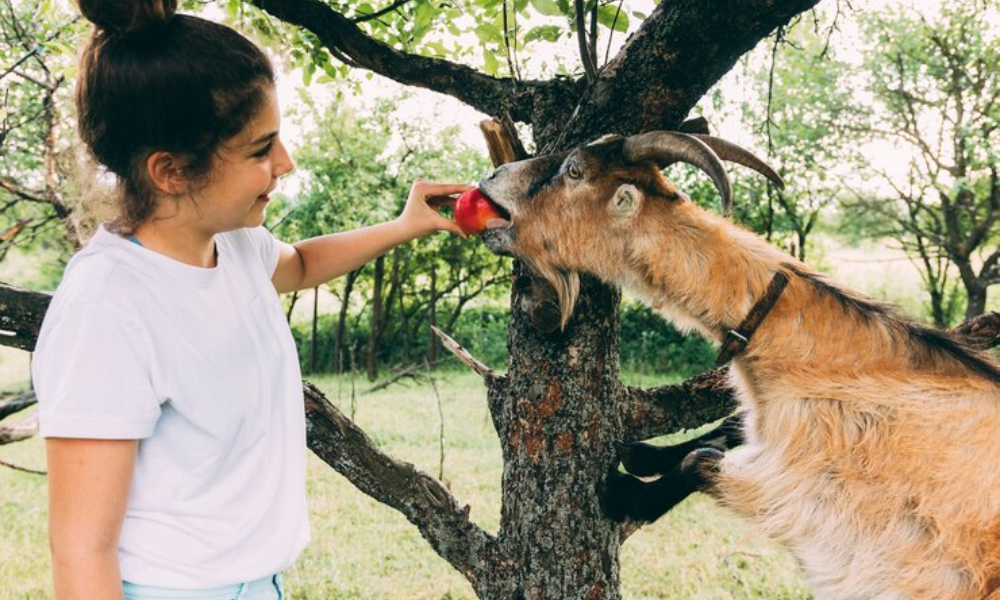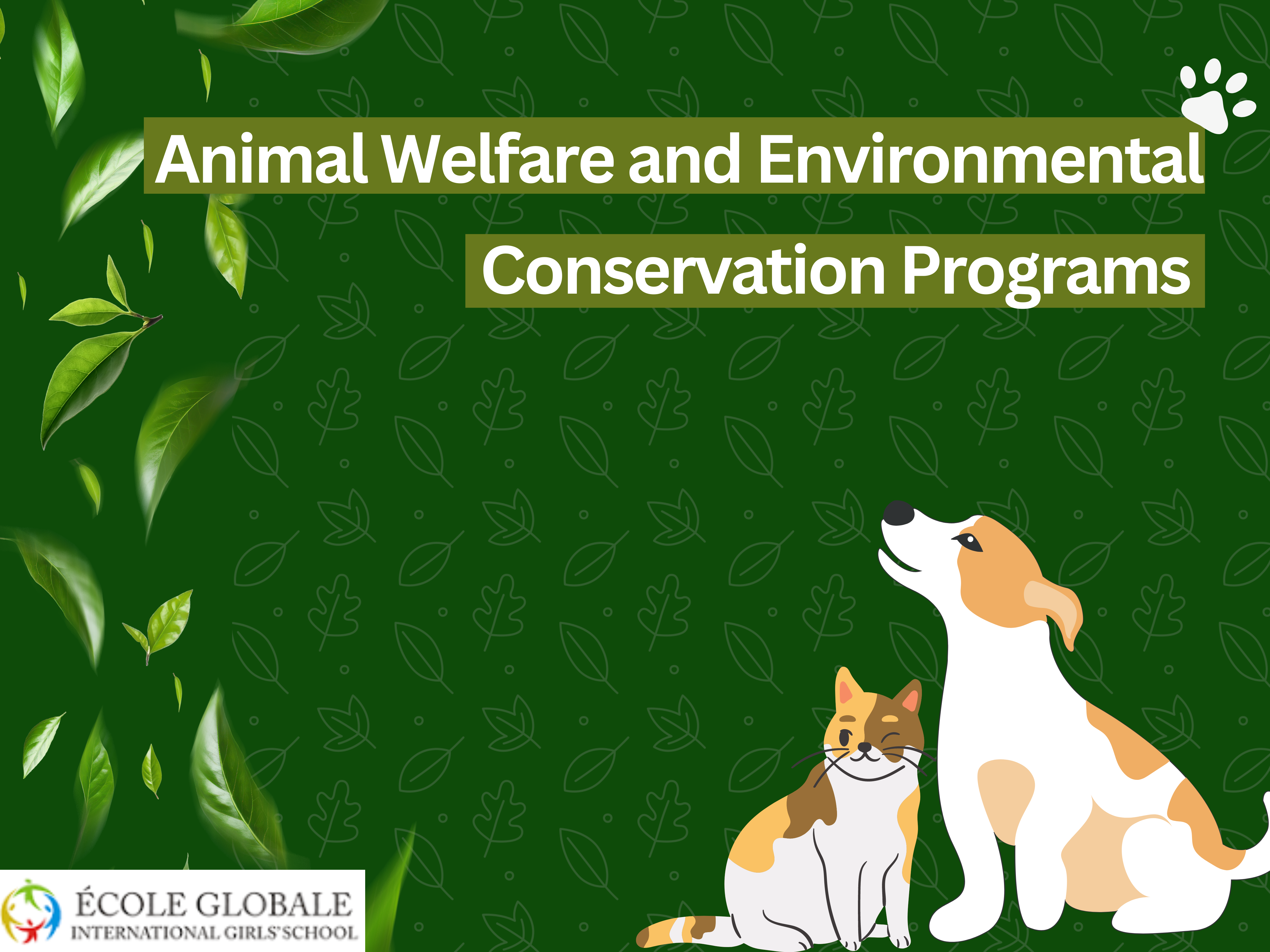Dehradun, nestled in the picturesque Doon Valley amidst the towering Shivalik and Himalayan ranges, is renowned not only for its natural beauty but also for its exceptional educational institutions.
Boarding schools in Dehradun are celebrated for their holistic approach to education, blending academic rigor with co-curricular activities to foster well-rounded development.
Among the numerous facets of their educational philosophy, animal welfare and environmental conservation programs stand out as vital components, particularly in institutions like Ecole Globale International Girls’ School in Dehradun, where the ethos of compassion and sustainability is deeply ingrained.
The Imperative of Animal Welfare Education

Animal welfare education is an integral aspect of developing empathy and responsible citizenship among students.
Boarding schools in Dehradun are uniquely positioned to champion this cause due to their close-knit residential setups, which provide an immersive learning environment.
Ecole Globale, for instance, has implemented comprehensive animal welfare programs that aim to instill a sense of responsibility and care towards all living creatures.
Understanding Animal Welfare
Animal welfare refers to the well-being of animals in various environments, including domestic, wild, and agricultural settings.
It encompasses ensuring that animals are free from hunger, thirst, discomfort, pain, injury, disease, fear, and distress, and that they can express normal behavior.
Educating students about these principles helps create a generation that values and advocates for humane treatment of animals.
Initiatives at Boarding Schools in Dehradun
- Rescue and Rehabilitation Programs: Several boarding schools in Dehradun collaborate with local animal shelters and NGOs to rescue and rehabilitate injured or abandoned animals. Students participate in these efforts, gaining hands-on experience in animal care and understanding the importance of rescue missions.
- Animal Care Clubs: Ecole Globale and other prominent schools have established animal care clubs where students engage in activities such as feeding, grooming, and providing medical care to animals. These clubs also organize awareness campaigns and fundraising events to support local animal shelters.
- Guest Lectures and Workshops: Experts in veterinary science and animal behavior are invited to conduct workshops and lectures, offering students insights into the scientific and ethical aspects of animal welfare. These sessions often include practical demonstrations, enhancing students’ understanding and skills.
- Farm Animal Care: Some schools maintain small farms where students learn to care for domestic animals like goats, chickens, and cows. This experience teaches them about sustainable farming practices and the ethical treatment of farm animals.
- Wildlife Conservation Projects: Proximity to wildlife reserves and sanctuaries allows schools to organize field trips where students can observe and learn about wildlife conservation efforts. Ecole Globale frequently arranges visits to Rajaji National Park and other reserves to study the native flora and fauna and understand the challenges of wildlife conservation.
Environment Conservation as a Core Curriculum Component

Environmental conservation education is crucial for fostering a sense of responsibility towards the planet. Schools in Dehradun, with their rich natural surroundings, provide an ideal setting for students to learn about and engage with environmental issues. Ecole Globale, among others, has integrated environmental conservation program into its core curriculum and extracurricular activities, ensuring that students develop a lifelong commitment to sustainability.
Core Elements of Environmental Conservation Education
- Sustainable Practices: Boarding schools emphasize sustainable living practices within their campuses. This includes waste segregation, recycling programs, water conservation measures, and the use of renewable energy sources. Ecole Globale has implemented solar panels and rainwater harvesting systems, serving as a model for sustainable infrastructure.
- Green Curriculum: Environmental science is a key component of the curriculum, with topics ranging from climate change and biodiversity to renewable energy and ecological footprints. Interactive and project-based learning approaches ensure that students not only understand theoretical concepts but also apply them in real-world scenarios.
- Eco-Clubs: Eco-clubs are a common feature in schools like Ecole Globale, where students take active roles in promoting environmental awareness and initiating green projects. Activities include tree planting drives, clean-up campaigns, and creating eco-friendly products.
- Field Trips and Nature Walks: Regular field trips to botanical gardens, national parks, and conservation projects are organized to give students firsthand experience of natural ecosystems. Nature walks and trekking expeditions help students connect with the environment, fostering a deeper appreciation and understanding of nature.
- Collaboration with Environmental Organizations: Schools often collaborate with environmental NGOs and governmental bodies to participate in larger conservation initiatives. This provides students with opportunities to contribute to significant environmental projects and learn from professionals in the field.
Case Study: Ecole Globale International Girls’ School

Ecole Globale International Girls’ School is a shining example of how boarding schools in Dehradun are making strides in animal welfare and environmental conservation. The school’s philosophy is rooted in the belief that education extends beyond academics, encompassing moral and ethical development through active engagement with the world around us.
Animal Welfare at Ecole Globale
At Ecole Globale, animal welfare education begins early, with programs designed to nurture compassion and empathy. The school’s initiatives include:
– Animal Shelters and Care Programs: The school has a partnership with local animal shelters where students volunteer regularly. They assist in caring for the animals, learn about their needs, and understand the importance of rescue operations.
– Pet Therapy: Recognizing the therapeutic benefits of human-animal interactions, Ecole Globale has incorporated pet therapy sessions into its wellness programs. These sessions help students manage stress and anxiety, while also teaching them the responsibilities of pet ownership.
– Curriculum Integration: Animal welfare topics are integrated into the science and ethics curriculum, ensuring that students receive a well-rounded education on the subject. Lessons on veterinary science, animal rights, and ethical treatment are part of the regular syllabus.
Environmental Conservation Efforts at Ecole Globale
Ecole Globale’s commitment to environmental conservation is evident in its various initiatives:
– Green Campus Initiatives: The campus is designed to be eco-friendly, with solar panels, rainwater harvesting systems, and extensive greenery. The school has a no-plastic policy and promotes the use of biodegradable materials.
– Biodiversity Projects: Students participate in projects aimed at preserving local biodiversity. They engage in activities such as planting native species, creating butterfly gardens, and maintaining organic vegetable patches.
– Environmental Education: The curriculum includes comprehensive environmental education, with subjects like ecology, environmental science, and sustainability. Students undertake projects that address real-world environmental issues, from reducing carbon footprints to developing conservation strategies.
– Community Outreach: Ecole Globale encourages students to take their knowledge beyond the campus through community outreach programs. They conduct workshops and awareness campaigns in nearby villages, educating the local population about sustainable practices and environmental conservation.
The Broader Impact on Students

The integration of animal welfare and environmental conservation programs in boarding schools in Dehradun has a profound impact on students. It not only broadens their educational experience but also molds them into responsible and compassionate individuals. Here’s how these programs benefit students:
- Developing Empathy: Engaging with animal welfare programs helps students develop empathy and compassion. Understanding the needs and suffering of animals fosters a sense of kindness and responsibility towards all living beings.
- Fostering Environmental Stewardship: Environmental conservation education instills a sense of stewardship and responsibility towards the planet. Students learn to appreciate natural resources and understand the importance of preserving them for future generations.
- Hands-on Learning: Practical experiences in animal care and environmental conservation projects provide hands-on learning opportunities. This experiential learning approach helps students retain knowledge better and apply it in real-life situations.
- Building Leadership Skills: Participating in clubs, organizing campaigns, and leading projects help students develop leadership and teamwork skills. They learn to take initiative, work collaboratively, and manage projects effectively.
- Enhancing Well-being: Interaction with animals and nature has been shown to enhance mental and emotional well-being. Activities like pet therapy and nature walks help reduce stress and anxiety, promoting overall well-being.
Conclusion
Boarding schools in Dehradun, particularly institutions like Ecole Globale International Girls’ School, exemplify how education can be a powerful tool for promoting animal welfare and environmental conservation.
By integrating these crucial aspects into their curriculum and extracurricular activities, these schools are nurturing a generation of empathetic, responsible, and environmentally conscious individuals.
The scenic backdrop of Dehradun provides an ideal setting for such initiatives, allowing students to connect deeply with nature and understand their role in preserving it.
As these young minds grow and step into the larger world, the values and lessons learned from these programs will guide them in making positive contributions to society and the planet.









